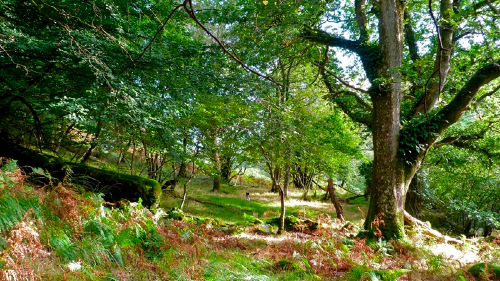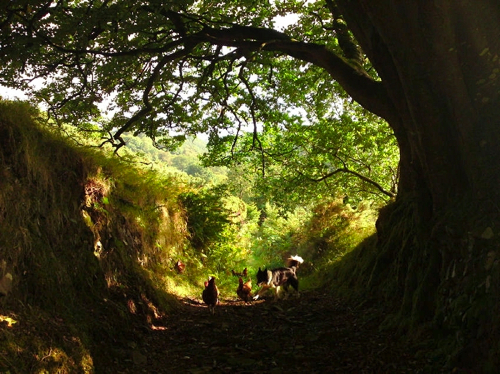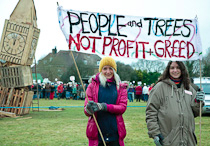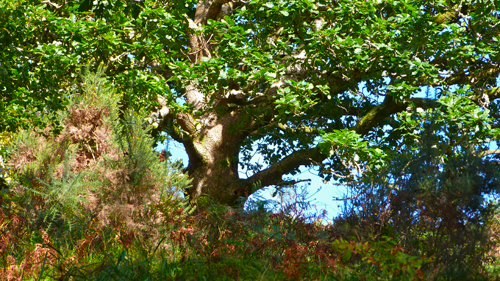‘Trees and Perennial Plants, the most natural and instructive Hieroglyphics of our expected Resurrection and Immortality’
John Evelyn 1670
‘We hope, also, that the legislature may not think it unworthy of their attention to take into consideration the subject of breathing places, on some systematic plan, calculated for the benefit of all ranks in all parts of the British metropolis’
J C Loudon 1829
‘the key to the problem how to restore the people to the land — that beautiful land of ours, with its canopy of sky, the air that blows upon it, the sun that warms it, the rain and dew that moisten it [Garden Cities]’
Ebenezer Howard 1902
‘Environment and organism, place and people, are inseparable….’
Patrick Geddes 1915
The implementation of ideals based on the work of the above, and many others, was rapid forming the basis of sustainable forestry and landscape connection. Philanthropy with government provided the funds and increased production and a progressive state proved the worth.
As our culture progressed since WWII, the wisdom contained within the idealism became the backbone of every branch of land management and every level of every branch.
These ideals were the common link; a reality that many could understand and which allowed for a steady stream of individuals to enter the world of land management in all its guises, more latterly biased towards ecology and conservation.
The progress of our custodianship and our knowledge evolved and continues to evolve as the landscape and the biodiversity contained within it changes. Fluidity in policy making and the subsequent actions of all stakeholders, particularly the greatest of all as identified by the above and others – the public, is vital. Although previous to Rio 92 Earth Summit ideals being implemented the importance of the public as a stakeholder was oft forgotten. UK ratification of the European Landscape Convention in 2006, brought the importance of the public back into the mainstream.
The Economics of Ecosystems and Biodiversity (TEEB) allows us to value landscapes and the ecosystems contained within them, not as a commodity in itself for exploitation but to simply realise the total worth. Humans who may have been or were at risk of disenfranchisement, (simply due to that philosophically stale human obsession with money) can now not only be a part of that value, but the value is theirs also. The process to full integration and a common value will be long but will be forced on by the growing urgency of tackling climate change.
Indeed the problems caused by climate change would be further advanced had it not been for the early idealism, arguably started in its modern form by John Evelyn in forestry terms having influenced us all.
On the 16th June, last week it was the last day of the progressive 6th Forest Europe ministerial conference, where the UK joined others in agreeing for a legally binding agreement, a chance to further integration beyond the wildest dreams of Evelyn, Loudon, Howard, Geddes and others.
On the same day, Phillip Blond of the think tank ResPublica stated to a meeting of conservation groups and others, on the launch of the latest ResPublica report, ‘Natural Policy Choices: Why trees and woods matter’ :
‘Given that beauty is one of the most consistent indicators of class and status in our country, just about the most effective thing that you can do to make your area more beautiful is to plant trees.’
Regressive beyond the limits of our historical knowledge with regards land management ideals.
At the same meeting Nick Boles, Conservative MP for Grantham and Stamford, whose constituency includes the headquarters of the Woodland Trust noted;
‘…that the uproar over the government’s proposed sale of the public forest estate was largely a “middle-class row”, and that all sections of society needed to feel a sense of ownership over the nation’s forestry.’
Oh dear.
The other speaker was Sue Holden chief executive of the Woodland Trust. Noting the title of the ResPublica report and given recent statements and text contained within the DEFRA white paper, it is plain to see that ‘values’ promoted and brought into the mainstream by Teeb and others is a route the government are keen to explore.
The Woodland Trust manifesto for UK forestry stated that planning gains could be used to plant more woodland close to the urban community. Now I am hoping that I am wrong and I would welcome a response to my following suspicions to say that I am wrong:
Are the WT about to lobby for a ‘planning credit’ system, using the ideals of nature and ecosystem values and the values ascertained, with the WT acting as agents to provide planting sites thus allowing an easy exchange of ecosystem and biodiversity values which may be destroyed by development?
If true, this will be abusing the work of those who developed the values of biodiversity and abusing the rights to whom the landscape belongs. These values are an insurance to protect and enhance not to be used as a red tape cutter for development.
Pip Howard
Sustainable land manager
An expert in soil, with a history in broadleaved silviculture linked to farming issues. Pip now specialises in site specific planting requirements, including; phytoremediation, urban silviculture and difficult planting sites.



























I was astounded when I read of this, Phillip Blonds’ take is not only primitive but to also track class systems into the arena of forestry policy is derisive to the industry.
Sue Holden is completely out of her depth as she tries to manipulate forestry policy and by consequence has stumbled upon an increasingly evident void in society, which is not class based or even political but is the two mindsets of modern ‘city & finance’ thinking and the rest of society. A void made so apparent in the current financial crisis. Her attempts to desperately introduce the former into the latter may well net her & the WT financial gains but she cannot compete against the big society which is working for free and with some great minds to assist to ensure progression for sustainable forest management is forthcoming.